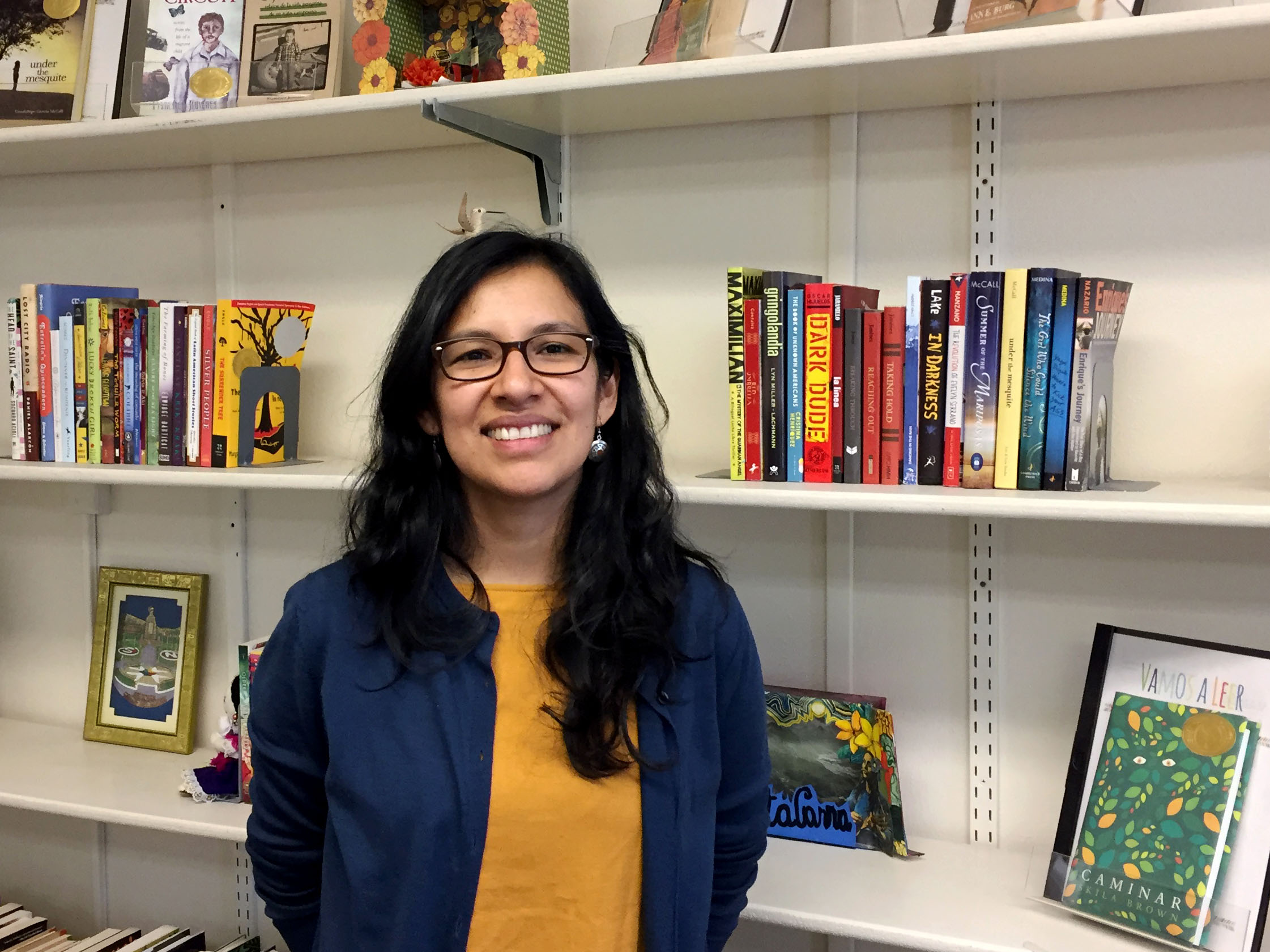LAII Welcomes First Faculty Member with Joint Appointment in LAS: Dr. Angelica Serna Jerí
April 13, 2020 - M. Robyn Côté

Dr. Angelica Serna Jerí started as an Assistant Professor with a joint appointment in the Department of Spanish and Portuguese and Latin American Studies at The University of New Mexico in Spring 2020. Dr. Serna Jerí is the first faculty member hired with a joint appointment in Latin American Studies and the department excitedly welcomes her and her wealth of knowledge and expertise. Dr. Serna Jerí is a scholar of indigenous languages and cultures in Latin America with a focus on the Andean region and the Quechua language family. For her first Latin American Studies course, she is teaching a course titled, “Languages, Culture, and Politics in the Andes.” Her course explores the cultural and political transformations surrounding written and verbal art in Quechua, the largest spoken indigenous language in South America, and how Quechua speakers in Peru, Ecuador, Colombia, Bolivia, and part of Argentina have engaged in the continuous practice of resistance and decolonization from the European invasion to the present. The course aims to take students on a journey from the colonial period to the present, incorporating the Quechua language in her class, providing a basis for thinking about parallel issues at a global level. In her course, students examine issues of translation, language hierarchy, material culture, cultural appropriation, heritage, patrimony, and inter-generational conflict.
Dr. Serna Jerí’s journey into the historical evolution of Quechua began when she was a child growing up in a bilingual Quechua-Spanish family in Andahuaylas, a city approx. 9 hours west of Cuzco, Peru. While growing up, she was surrounded by stories narrated in Quechua by family members that inspired her interest in the dynamic relationship between writing and verbal art. After her family moved to Lima, she began her studies at the Universidad de San Marcos where she encountered the works of José María Arguedas, one of the main figures of the indigenismo movement, whose work from the 1960s incorporated the juxtaposition of writings in both Quechua and Spanish. His works illustrated the resulting problems and issues, which started at the beginning of the European colonization of Peru, and encouraged her to focus her research on the role of indigenous speakers and the emergence of literacy in the colonial period.
She became fascinated by how books written in Quechua from the 17th century produced a grammatical structure in order to create a written Quechua language. “The written corpus that we know from the 17th century was produced by missionaries under colonial rule in order to evangelize or proselytize indigenous peoples, and only created a representation of the grammar of the Quechua language,” she says. “It did not include the rich lexica central to the Andean world.”
While working on her PhD at the University of Michigan, she spent a year and a half doing research in Peru and elsewhere, thanks to a grant she received from the Wenner-Gren Foundation. Her research took her to Cuzco, Ancash, Ayacucho, Lima, and Huancayo in Peru. She spent months researching the historical documents in various archives such as the Archivo de las Indias in Sevilla, Spain, the Spanish National Library, the US National Archives, and the US Library of Congress, among other collections. Much of her research landed her in what she describes as, “lives of old books, paper, libraries, and archives.” Dr. Serna Jerí says of her work, “By reflecting on how spoken experience articulates with text, my work also examines the affective aspects of the archive.” This research will culminate in a new book, with the working title Life in the Archives. Emerging literacy in the Colonial Andes.
Dr. Serna Jerí incorporates the theory of subaltern studies into her research and teaching in order to examine the question of how power and archives intersect. Reflecting on power and archives, Dr. Serna Jerí says, “I became fascinated by how archives function and hold information and sometimes are the institutions of power that very much control the circulation of knowledge. Digitization reproduces certain colonial problems, such as inequality of access for indigenous communities.”
She further notes, “Even though these documents were produced in the colonial period, we need to see them as objects that impact indigenous communities now.”
